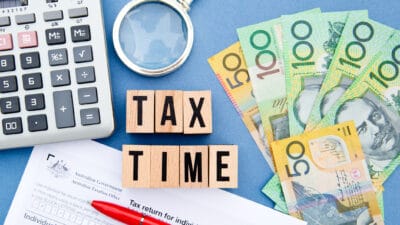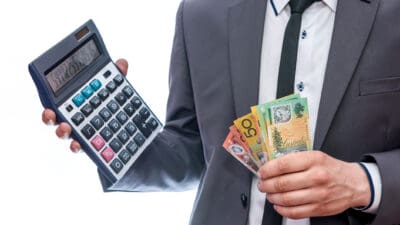Some of the biggest misconceptions surrounding investing in ASX shares come from tax – and how much you have to pay. I once heard someone say they didn't want to invest in shares because "then I'd have to pay tax on them".
Like they say, along with death, tax is one of the inescapable facts of life, and the share market is not immune from this reality. But that doesn't mean we shouldn't invest at all, or else make silly investment decisions based on the tax ramifications alone.
So let's answer a common question ASX investors (and potential investors) might have on tax.
Do you have to pay tax on ASX shares?
There are 2 types of taxes most people will normally have to pay in the course of investing in ASX shares: capital gains tax (CGT) and income tax.
Normally, income tax is only payable on any dividends you receive. These dividends are attached to any other income you make (such as your salary or wages) when you fill out your tax return. If a company pays no dividends, you normally don't have to pay income tax. Further, if your dividend comes with franking credits, you can use those franking credits to reduce your taxable income (or receive a cash refund if you don't pay tax).
In contrast, CGT is only payable if you sell your ASX shares. If you bought $1,000 worth of Afterpay Ltd (ASX: APT) shares back in March for around $8, you'd today be sitting on roughly $12,000 worth of Afterpay shares today, seeing as the Afterpay share price is currently $96.08 (at the time of writing).
If you haven't sold any of these shares to date, then you won't have a tax bill. Simple. However, if you do decide to sell these shares, you will have to pay CGT on the profit you've made (not the whole invested amount). That amount is simply added to your income tax bill at the end of the year. Further, if you sell shares for a loss, you can normally roll-over that loss to deduct against any future gains.
One more perk, under current tax laws, if you own a share or investment for longer than 12 months, you get a 50% discount on those gains for CGT tax purposes.
Foolish takeaway
We all have to pay tax, and the share market isn't a free ticket to ride. However, you should never let the tax consequences of investing put you off. In fact, investments are often taxed at concessional rates (franking and the CGT discount) compared to other forms of income you can earn.
Of course, this is all general advice, and you should always seek the counsel of a licensed tax professional for your own affairs. But remember this: a wise investor once told me, "If you have a massive tax bill from your shares, you're doing something right". Wise words indeed!






